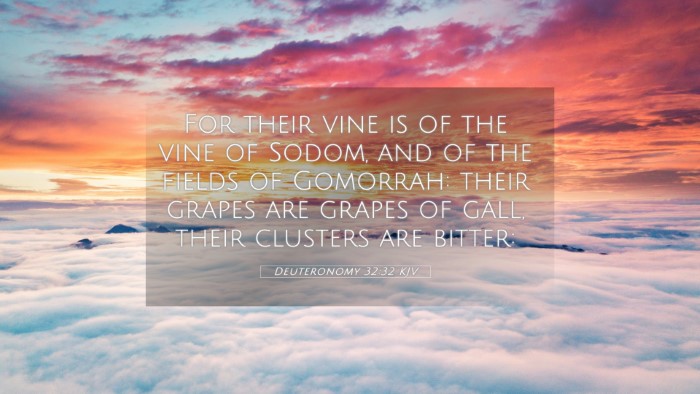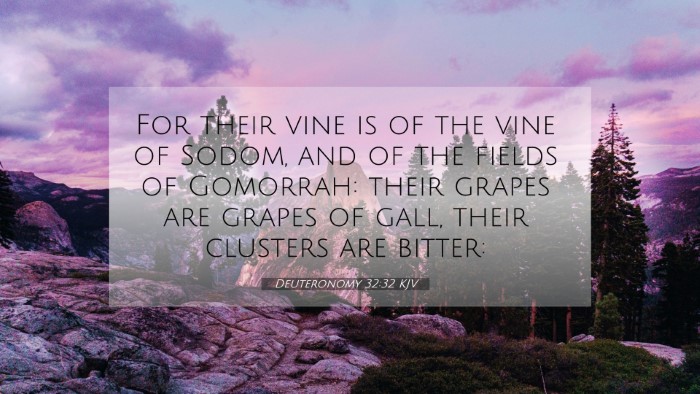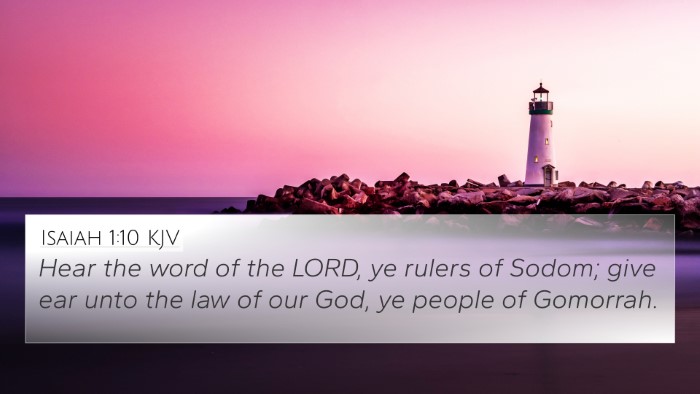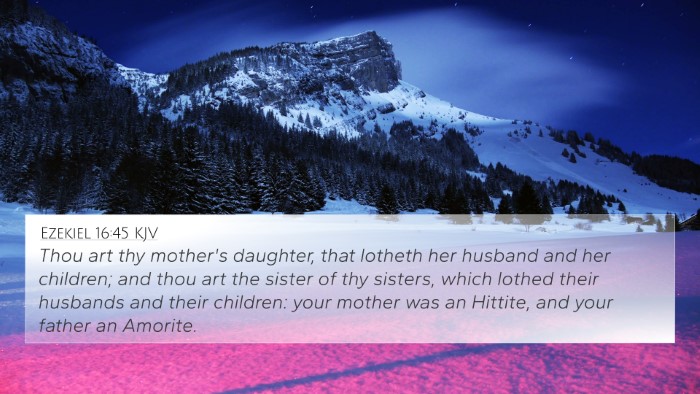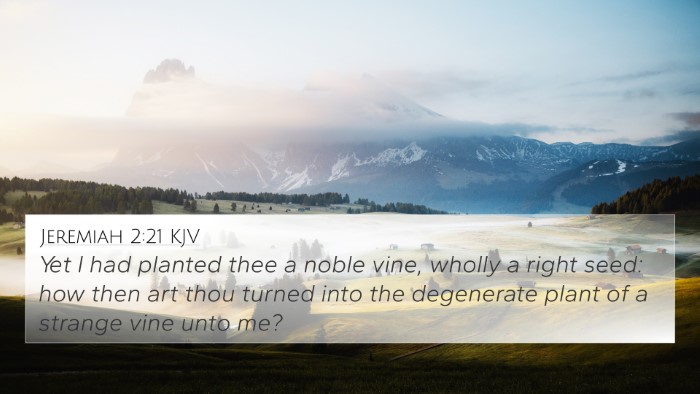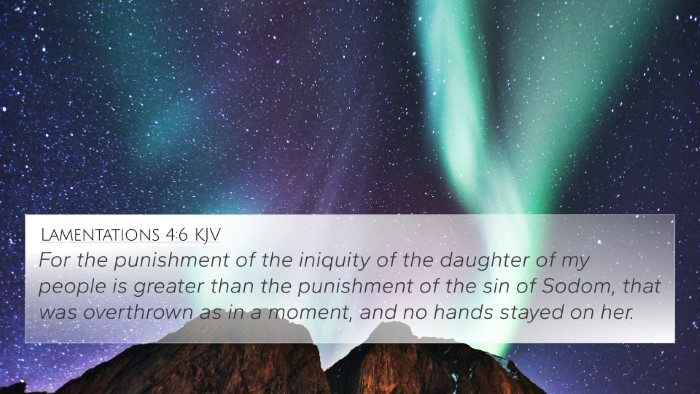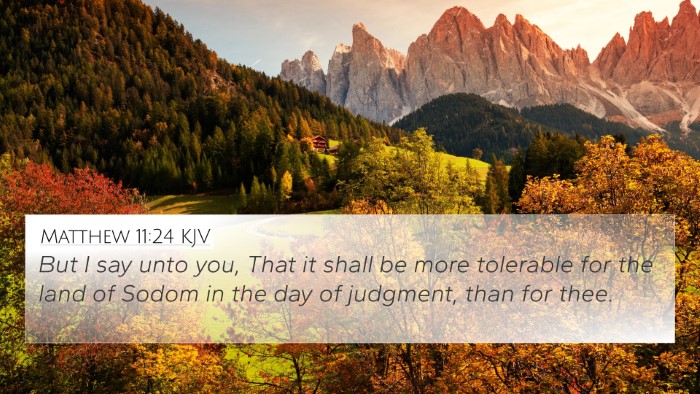Understanding Deuteronomy 32:32
Verse Text: "For their vine is of the vine of Sodom, and of the fields of Gomorrah: their grapes are grapes of gall, their clusters are bitter."
Overview of the Verse
Deuteronomy 32:32 is part of the Song of Moses, which articulates themes of God's sovereignty, Israel's rebellion, and the consequences of turning away from Him. This specific verse draws a comparison between the Israelites and the infamous cities of Sodom and Gomorrah, symbolizing the depth of their corruption and the bitterness of their actions.
Commentary Insights
-
Matthew Henry:
Henry elaborates on the metaphor of the vine, indicating that just as the vine of Sodom produces bitter fruit, so too does Israel's departure from God lead to bitter consequences. The imagery highlights the notion that the character of one's fruit reflects the character of their source.
-
Albert Barnes:
Barnes emphasizes the notion of moral decay and the inevitable judgment that follows. He points out that the vine of Sodom represents false teachings and corruption that can lead the faithful astray, warning readers to be mindful of the spiritual fruit they bear.
-
Adam Clarke:
Clarke explains that the reference to Sodom and Gomorrah serves as a stark reminder to the Israelites of their own failings. He notes the bitter grapes as representative of the sorrow and destruction that results from a life lived in rebellion against God.
Cross-References with Deuteronomy 32:32
This verse connects with several others in highlighting themes of judgment, corruption, and the nature of idolatry:
- Genesis 19:24-25: The destruction of Sodom and Gomorrah serves as a historical backdrop illustrating divine judgment.
- Lamentations 3:15: This verse talks about bitterness in relation to sin and the sorrow it brings upon God’s people.
- Isaiah 1:10-14: The people of Israel are compared to Sodom and Gomorrah, emphasizing their sinful nature.
- Romans 1:26-27: Paul's discussion of moral depravity parallels the themes of judgment found in the Old Testament narrative.
- Galatians 5:20-21: The acts of the flesh are described here, drawing a line between sinful actions and their consequences.
- Matthew 7:16-20: This passage discusses recognizing people by their fruits, akin to the metaphor of bitter grapes in Deuteronomy.
- Revelation 14:10: References to the wrath of God echoes the themes of judgment found in Deuteronomy 32.
Thematic Connections in Scripture
Deuteronomy 32:32 connects deeply with overarching biblical themes:
- God's Judgment: Throughout scripture, God’s judgment is a recurring theme, particularly in response to sin and rebellion.
- Corruption and Idolatry: The comparisons made in this verse parallel numerous scriptures that discuss the church and its struggle against worldly influences.
- Consequences of Sin: This verse serves as a poignant reminder of the bitter fruit that results from turning away from God, linking to countless narratives of Israel's disobedience.
Implications for Personal Reflection
As one reflects on Deuteronomy 32:32, consider the following:
- Self-Assessment: How do your actions and choices reflect your faith? Are they producing sweet or bitter fruit?
- Community Influence: In what ways do the influences around you affect your relationship with God? Are they pulling you towards Sodom or towards Him?
- Repentance and Growth: Recognize the call for repentance embedded in this verse; it invites believers to turn back to God and cultivate a healthier spiritual garden.
Conclusion
Deuteronomy 32:32 serves as not only a historical reminder about the fate of Sodom and Gomorrah but also as a timeless warning against moral decay and the bitter outcomes of sin. It encourages believers today to evaluate their lives in light of scripture, reflecting on the grapes they produce and the roots from which they grow.

